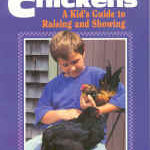
FREE SHIPPING on all supply order totals exceeding $25.00.
Item #B67

The American Bantam Association (ABA) is an organization of bantam chicken enthusiasts who enjoy breeding and showing bantams, as well as socializing with other people who share their interest. Here’s why you should join the American Bantam Association: ABA History The non-profit American Bantam Association was founded in 1914 to support the poultry fancy, and […]
Continue Reading
Properly stored chicken feed keeps the nutrients from degrading and the feed safe to eat. A number of things can cause feed to go bad including rodents, insects, mold, moisture, and light. To ensure freshness, use up feed within 2 to 4 months. Meanwhile, store chicken feed in a durable container with a tight-fitting lid. […]
Continue Reading